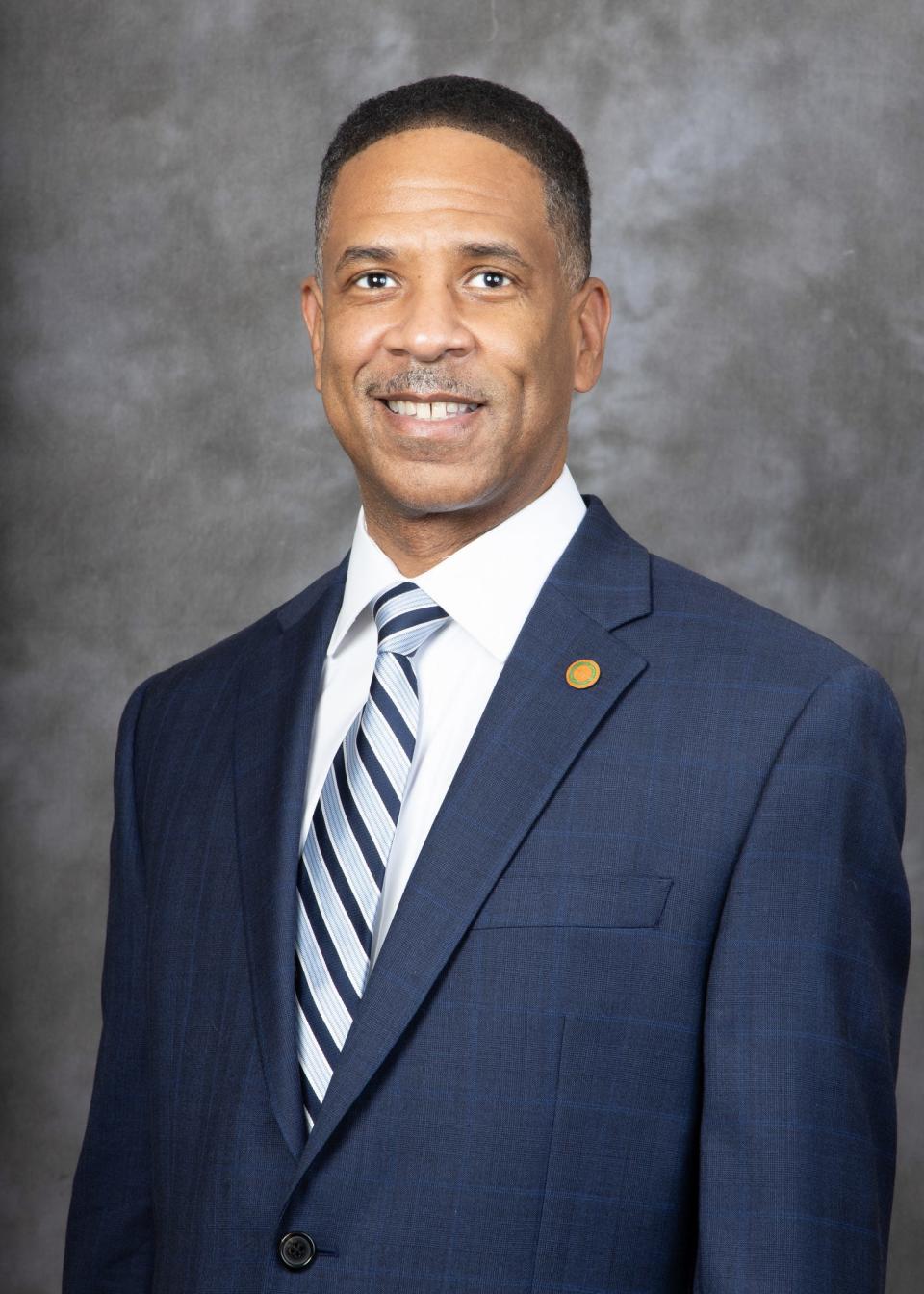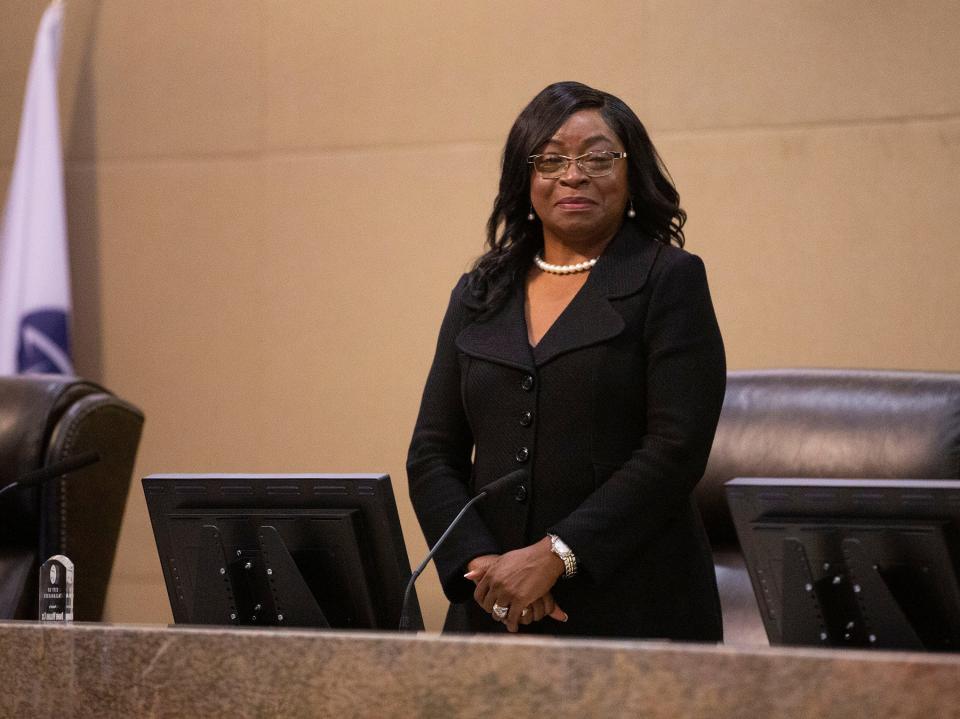FAMU receives $5.4 million to provide free, high-speed internet to southside Tallahassee

Florida A&M University’s efforts to provide its students and southside Tallahassee with free, high-speed, wireless internet are in the making after receiving a $5.4 million two-year grant for the initiative.
The “Building a Digital Pipeline to Prosperity” project will create a “FAM-G” network that is expected to launch in about eight months — right around the time of FAMU’s annual homecoming.
The university's goal is to bridge the digital divide that exists between its 422-acre main campus and the city's south side as the internet access will extend to the underserved community that surrounds it by at least a one-mile radius.
Local southside residents like Elton E. Thomas, who currently resides in Apalachee Ridge Estates located off Orange Avenue — nearly two miles away from FAMU’s campus — would potentially benefit from the free-of-charge, high speed internet if it reaches his zone.

Thomas currently pays about $100 a month for internet access with Xfinity.
“For one, the service would help people who especially have slower services here or no service at all,” said Thomas, 66, who has been living in Tallahassee since 1985.
Who is spearheading the initiative?
The project is being funded by the National Telecommunications and Information Administration, which has a large focus of expanding broadband internet access across the nation.
FAMU-related news:'A godsend': Tallahassee native, FAMU student who drowned at Miramar Beach remembered at vigil
More:FAMU student, Rickards High grad, who drowned in Miramar Beach, brought 'joy to everyone'
FAMU’s Chief Information Officer Robert Seniors, who also serves as the university’s vice president for Information Technology Services, is the co-principal investigator for the grant along with FAMU Physics Professor Lewis Johnson, who is the university’s associate provost for Student Success and Strategic Initiatives.
Seniors hopes the new “fast, secure, robust and readily available” wireless network will change the digital landscape of FAMU’s main campus and the targeted community.
“It’s going to provide connectivity 10 times faster than typical broadband networks,” Seniors said. “Whatever you can imagine, you’ll be able to achieve that online via FAM-G. It’s going to enable innovation, education and collaboration.”

Tallahassee’s Mayor Pro-Tem Dianne Williams-Cox, who is also a southside community resident, expressed how much of a “game changer” the new network would be for the underserved area.
"This no-cost access is going to be helpful for young people as well as our seniors and those in between,” Williams-Cox said. “I’ve heard that some folks are having to go sit in the McDonald’s parking lot to get their work done and all that kind of stuff, so this is an opportunity to spread the access so that they won’t have to do that.”

While FAMU takes the lead on the project, it will partner with two minority business enterprises — Data Set Ready and Quality Measures — which will be responsible for installing the hardware and software needed on campus. This means that FAM-G will blanket the university’s main campus while providing high-speed accessibility for the southside community beyond FAMU.
Currently, FAMUSecure is the primary wireless network for students, faculty and staff at the university, and the FAMUGuest network provides unencrypted wireless access for visitors on campus.
"What we are doing is increasing access," Seniors said, referring to the new service. "This is an investment in the future."
The FAM-G network will be accessible through a portal using a web browser, according to Seniors, and a technical assistance program will be created through the project to help individuals use it successfully. He says the new service will also be sustained through the university budgeting and planning process.
Besides the business enterprises, other collaborators of the grant project are The Student Freedom Initiative — a nonprofit that empowers HBCU (historically Black college and university) students for success — and the Educational Research Center for Child Development — a FAMU-affiliated nonprofit that offers preschool and afterschool services to children ages 3-12.
In addition, a Pre-K to Ph.D. pipeline will be established through the project by creating STEM (science, technology, engineering and mathematics) and digital readiness curriculum for students at every grade level.
Kandis May, a southside resident who has been living in Tallahassee since 2009, has two daughters in ninth grade and first grade, and she says her internet bill is around $125 a month.
“Students have their Chromebooks, so they need the internet to do their homework when they get home,” said May, 39. “For those who can't afford services like Xfinity, which is pretty high, it’s nice that they’d still be able to use the free internet service to do things like search for jobs or create their own source of income.”
How far will the high-speed wireless internet reach into south Tallahassee neighborhoods?
Some concerns from the community about the project include whether the FAM-G network will actually reach their living areas.

Managing Real Estate Broker of Kingdom First Realty Christic Henry — who is also a community advocate — serves as executive coordinator of the Apalachee Ridge Technology Center, which was founded in 2007 and operates from a house in the neighborhood.
More:#GiveTLH 2021: Apalachee Ridge Tech Center opens doors to learning
The center is currently designated as a Lift Zone by Xfinity — an initiative by Xfinity that provides Wi-Fi access to students who are unable to connect to distance learning at home — but the service has tight limits.
"The Lift Zone capabilities only extend 200 feet from this facility, so if you aren't in the front yard, you can't get on the lift zone,” Henry said. “I think that the FAM-G integration brings great opportunity, but that's if it comes out here. That's the other piece — how far will it really extend?”

Despite the uncertainty of how much of the southside community will be able to benefit from the new service, Henry said it’s a “great first step” of the university toward narrowing the divide.
Throughout the course of the project, an evaluation of the National Telecommunications and Information Administration grant will be conducted to determine the effectiveness, efficiency and short-term impact of the high-speed internet usage.
“We’re hoping this grant will be a spring board to other opportunities so that we can continue to uplift our institution and members of the community,” Seniors said.
Contact Tarah Jean at tjean@tallahassee.com or follow her on twitter @tarahjean_.
Never miss a story: Subscribe to the Tallahassee Democrat using the link at the top of the page.
This article originally appeared on Tallahassee Democrat: FAMU grant to provide free high-speed internet to south Tallahassee

 money
money 